#this is vital to stop misinformation spreading
Text
Honestly really upset about the James Somerton thing.
#the plaigerism is really bad but honestly think the lies are worse#todd in the shadows who i already really like and respect as a longtime fan put up a video where he showed the worst ones#they are mostly lies and not misunderstandings or fuck ups#just...why to people do this i just don't know#anyway if you are going to repeat something you heard in a video essay to someone else please please research whether it is true first!!#this is vital to stop misinformation spreading#tumblr already has a serious problem with this about queer issues#i remember during the ace discourse years (which were already awful) a weird 'queer is a slur' vs 'queer is not a slur' debate started#which was mainly people claiming that all the people on their side were good and all the people on the other side were bigots#the marginilised people were all on their side and the bigots were all on the other side#it just got like....what the fuck are we doing?? :(#the ace discourse era may be thankfully over but the debate i described above is still going on#it's just fucking sniping and neither side is listening to the other i can't bear it#anyway my point is tumblr has been doing this way longer than james has so please resist the urge to do this#everything in history is more complicated than that...everything!#personally i think that's what makes it great and have found the reality is much broader and better than making up my own#to keep myself happy...you know??
4 notes
·
View notes
Video
youtube
This One Thing Made Alex Jones Stop Lying
Alex Jones will have to pay millions to the parents of Sandy Hook victims.
Fox News might be on the hook for over a billion dollars after making bogus 2020 election claims.
It turns out there actually might be a way to stop the constant stream of lies coming from the right-wing media. How can we do it? Two words:
Sue. Them.
This won’t defeat the right’s media ecosystem overnight — but defamation law may prove to be one vital weapon in the battle against misinformation. Let me explain.
Alex Jones, you may recall, had used his website InfoWars to portray the Sandy Hook school shooting massacre as a hoax involving actors, aimed at increasing gun control. Parents of victim children sued Jones and his media company for $150 million — ultimately winning an initial settlement of $49 million.
Courts in Texas and Connecticut had already found Jones liable for defamation. And as a result, Jones’ parent company, Free Speech Systems, filed for bankruptcy.
Even though Jones lost this case and finally admitted that the Sandy Hook massacre was “100 percent real,” he’s probably not going to stop making harmful and deceptive videos anytime soon.
But this defamation lawsuit will serve as a warning to both Jones and others in the media who build their business models around spreading lies.
Like OAN.
One America News, a Trump-allied media organization that pushed conspiracy theories about the election, is facing so many defamation lawsuits from those harmed by the start-up network’s lies that its future is now in doubt.
Cable providers have dropped OAN like an extremist hot potato, and the network is now only available to a few hundred thousand people who subscribe to smaller cable providers.
Talk about cutting the chord.
Defamation lawsuits have also been filed against more established right-wing media organizations, like Fox News.
Dominion Voting Systems, a maker of election information technology used widely across the country, is suing Fox for $1.6 billion over false claims they say the network knowingly made about its software following the 2020 Election.
The case could potentially be a huge financial blow to Fox, and serve as one of the most consequential First Amendment cases in a generation.
Again, to be clear, defamation litigation will not single handedly stop the rampant spread of misinformation taking over the airwaves and the internet. These lawsuits can take years and often end up being expensive, plus some of the media organizations peddling lies are bankrolled by conservatives with deep pockets and a radical agenda.
It can also be abused, and in some cases, pose potential threats to the free press. Although, if news outlets are alerted to errors and correct them quickly, defamation shouldn’t be a problem.
But at a time when social media companies clearly can’t be trusted to moderate themselves against weaponized lies — and elected officials have done little to step-in — the courts might be the best avenue we have to take on manufactured deception and put it to rest.
Where other methods to counter half-truths and exaggerations being spewed by Fox News and their ilk have failed, defamation law might make companies think twice before they knowingly spread falsehoods — and help stop the vicious cycle of lies, clicks, and profits that further divides our country.
293 notes
·
View notes
Text
Been blocking more Zionists who appear on my feed, seriously get the fuck out of here already, and of course one of these people has shared a post of an article talking about how a "Big Pharma Rep" has said that the, "COVID vaccine is designed to kill babies."
Can we stop for a minute and think before we share things? Ask ourselves, "Why would this be happening?" And then look at those reasons and ask, "Are these legitimate reasons?" Like the whole "micro-chip in the vaccine" or whatever they're saying these days because "the government wants to control us!" The government does not need to micro-chip you. Most all of us have a phone which has the ability to track your location (friendly reminder to not bring your phone to protests and cover your face so you are harder to identify) and has a microphone that picks up what you're saying. And then that information is being used for targeted ads and other reasons. If you're in the US, you likely have some form of legal identification, whether that be a literal number assigned to you or something like a driver's license, they have plenty of information on you. Stop and just think for a minute about the things you're spewing and maybe accept that your world view might just be wrong.
But it is kind of funny to me that the people who are claiming Hamas and the average Palestinian wants to murder Jews (they don't) are being sided with the people who spread wildly inaccurate and harmful misinformation and don't stop to think, "Hey, why are these people supporting me?"
Critical thinking skills are vital and necessary. It's been how many years since Plato's Allegory of the Cave? I feel like maybe we should've figured this out by now, but I guess not
#free palestine#palestine#free gaza#genocide#gaza genocide#from the river to the sea palestine will be free#fuck zionists#covid#vaccine#critical thinking#allegory of the cave#begging you all to accept that maybe you're not always correct in your worldview
2 notes
·
View notes
Text
ive probably said it before but im getting mildly anxious about people trusting my information again so im just gonna repeat it
i am not someone you should trust for reliable information
please fact check anything i say about anything !!
reasons i am unreliable and prone to spreading misinformation despite my best efforts:
i'm kinda dumb :)
i'm also! gullible as hell. it's not that i don't understand that people lie, it's more that i usually don't understand what reason anyone would have to lie to me. so 9 times out of 10 i don't even register it as a possibility. like i know but i don't realize in the moment
i have amnesia! i forget stuff a lot. like a lot a lot. i'm so used to being afraid that what i'm saying isn't actually true because i forgot something that i don't even register that feeling as a warning bell for "i should look this up and make sure im right" anymore
fatigue, dissociation, and struggles with reading comprehension all limit my ability to research (this includes fact checking). it's highly possible that i will reblog something without fact checking simply because i'm 90% sure it's true and i trust the source it's coming from and this is because i don't have the energy or i'm too dissociated to even be able to. (the reason this doesn't stop me from reblogging stuff at all is because if i only reblogged stuff i was able to fact check thoroughly, i would be reblogging far less. and in a time when information is vital to the causes i care about, i would rather run the risk of getting something wrong instead of ultimately suppressing the voices of those on the ground)
i was also! never taught how to research. was i taught stuff in school? yeah. was i taught well? no lol i'm in usamerica plus my school history is fucked because of... complications. but regardless, was i ever taught (even minimally) how to research in a way that works with my brain? no :) schools weren't designed for me (undiagnosed autistic)
tldr: i do try! i really do. but im kinda stupid! don't trust me! i basically only ever know what im talking about when it comes to personal experience and gorillas
2 notes
·
View notes
Text
Technology companies are more active than ever in trying to stop terrorists, white supremacists, conspiracy theorists, and other hateful individuals, organizations, and movements from exploiting their platforms, but government and public pressure to do more is growing. If companies decide to act more aggressively, what can they do? Much of the debate centers around whether to remove offensive content or leave it up, ignoring the many options in between. This paper presents a range of options for technology companies, discussing how they work in practice, their advantages, and their limits and risks. It offers a primer on the many choices available and then discusses the numerous trade-offs and limits that affect the various approaches.
Broadly speaking, the actions companies can take fall into three categories. First, they can remove content, deleting individual posts, deplatforming users or even entire communities, and otherwise simply removing offensive and dangerous content. Second, they can try to reshape distribution—reducing the visibility of offensive posts, downranking (or at least not promoting) certain types of content such as vaccine misinformation, and using warning labels—and otherwise try to reduce or limit engagement with certain material but allow it to stay on their platforms. Finally, companies can try to reshape the dialogue on their platforms, empowering moderators and users in ways that make offensive content less likely to spread.
Tensions and new problems will emerge from these efforts. The question of censoring speech will remain even if certain content remains up but is not amplified or is otherwise seen as limited. Companies also have incentives to remove too much content (and, in rarer cases, too little) to avoid criticism. Process transparency, a weakness for most companies, remains vital and should be greatly expanded so that users, lawmakers, researchers, and others can better judge the effectiveness of company efforts. Finally, some toxic users will go elsewhere, spreading their hate on more obscure platforms. Despite these limits and trade-offs, the options presented in this paper provide a helpful menu that companies can use to tailor their approaches so that they can offer users a more vibrant and less toxic user experience.
2 notes
·
View notes
Text
Question 2 (part 2): What is the connection to citizen journalism?
The decline in traditional media is also because of the growing interest in citizen journalism. Since, people are not trusting the traditional media sources anymore, they turn to other alternative sources for information. “Younger audiences are increasingly accessing the news via platforms such as TikTok, and have a weaker connection to news brands, the report found. Each week 78% of 18- to 24-year-olds access news via aggregators, search engines and social media. Forty percent of that age group uses TikTok each week, with 15% saying they use it to find, discuss or share news” (Coster, 2022, para. 5,6). “Citizen journalism is becoming increasingly important in today’s world, where the line between traditional news outlets and social media is becoming more blurred. Citizen journalists can offer unique insights and perspectives on events that traditional news outlets may not cover, providing a more complete picture of what is happening in the world. Additionally, citizen journalism can help hold those in power accountable, as citizens can report on events that might otherwise go unnoticed or unreported” (Chakraborty, 2023, para. 7-9).
According to the Headline US, (2023), Citizen journalism also helps cover local news that mainstream media might miss. By sharing stories about their neighbourhood and community issues, citizen reporters create stronger connections and involvement in local areas (para. 4). An example of this is the work done by citizen journalists during the Covid-19 pandemic.

Figure 4: From Citizen journalists are documenting COVID in the world’s conflict zones to stop disinformation by T. Visram, 2020, Fast Company, https://www.fastcompany.com/90521383/citizen-journalists-are-documenting-covid-in-the-worlds-conflict-zones-to-stop-disinformation
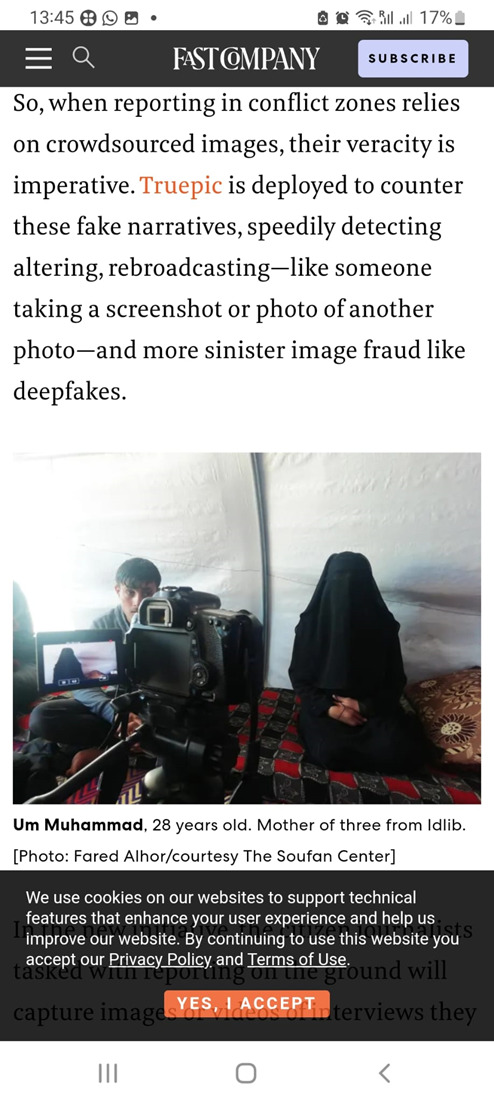
Figure 5: From Citizen journalists are documenting COVID in the world’s conflict zones to stop disinformation by T. Visram, 2020, Fast Company, https://www.fastcompany.com/90521383/citizen-journalists-are-documenting-covid-in-the-worlds-conflict-zones-to-stop-disinformation
According to Visram, (2020), During the COVID-19 pandemic, citizen journalists played a crucial role in bringing attention to the dire situation in conflict zones like Syria, Yemen, and Libya, which were largely overlooked by mainstream media. With limited access for foreign journalists due to ongoing violence and geopolitical crises, citizen journalists on the ground became vital sources of information. (para. 2-4). Collaborating with platforms like Truepic, they documented the impact of the virus on already vulnerable communities, such as the scarcity of medical resources and the spread of misinformation. By sharing verified images and videos, citizen journalists helped shed light on these issues, prompting global awareness and calls for urgent aid. Their efforts highlighted stories that would have otherwise gone unnoticed, demonstrating the importance of grassroots reporting in times of crisis (para. 9-11).
0 notes
Text
Consequences of Deepfake Technology
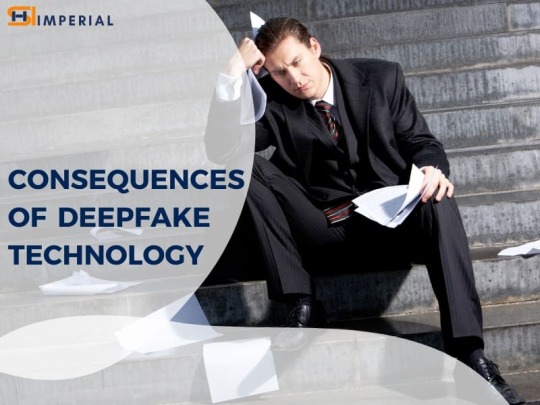
INTRODUCTION:
Deepfake is a technology that uses deep learning to create realistic and frequently deceptive digital content. It is one of the new technologies that have emerged from the rapid growth of artificial intelligence. Deepfakes are a remarkable technological achievement, but their effects go far beyond amusement. This article explores the complex ramifications of deepfakes, looking at how they affect misinformation, privacy, trust, and wider societal ramifications.
To achieve a future where privacy, truth, and trust are vital, we must navigate the complex landscape of synthetic realities while striking a balance between innovation and upholding social ideals.
Periodically, social media companies have received advice from the Ministry of Electronics and Information Technology to utilize caution and act quickly to stop deepfakes.
Privacy Erosion:
Because deepfakes make it possible to manipulate digital content—including audio and video recordings—they represent a serious danger to people's privacy. The possibility of misusing personal information to create false narratives or engage in extortion or defamation is raised by the capacity to superimpose someone's likeness onto made-up circumstances.
Deficit in Trust:
The prevalence of deepfakes undermines confidence in the veracity of digital content. People may get more dubious of the information that is given to them as the line separating truth from fiction becomes more hazy, which could foster a widespread atmosphere of mistrust. This may have an effect on a variety of fields, including journalism and interpersonal interactions, where trust is essential.
Political Manipulation:
By producing fake statements or movies that inaccurately portray public personalities, deepfakes have the ability to upend established political systems. Deepfakes used maliciously in political situations have the potential to sow strife, sway public opinion, and disrupt the democratic process, hence endangering elections and governance integrity.
Disinformation Spread:
The likelihood of disinformation is increased by the ease with which deepfakes can be produced and distributed. Misinformation, made-up claims, and contrived incidents have the ability to spread rapidly online, causing general confusion and social instability. An era already dealing with the fallout from disinformation is made more difficult by deepfakes when it comes to separating real content from fake.
Risks Associated with Identity Theft and Cybersecurity:
Deepfakes create additional difficulties for both identity theft and cybersecurity. The capacity to convincingly assume the identity of another person can result in financial fraud, illegal access, and the compromise of private data. For both individuals and organizations to protect themselves from this new danger, cybersecurity measures must be strengthened.
Effects on Journalism and Authenticity:
The emergence of deepfakes puts journalism's core values and the pursuit of truth under jeopardy. The public may grow increasingly dubious of news reporting and journalistic integrity, and journalists may encounter greater difficulties in confirming the veracity of media information.
Effect on Reputation:
Deepfake information that damages people's reputations can have serious repercussions for both private citizens and public personalities. It is possible to purposefully create fake audio or video recordings that show someone participating in improper or unlawful behavior, seriously damaging their reputation both personally and professionally.
Difficult Legal and Ethical Issues:
The rise of deepfakes presents difficult legal and moral issues. It may be difficult for current regulations to keep up with the quick development of this technology, which makes it difficult to hold developers liable for improper use. It is important to carefully analyze the ethical implications of manipulation, consent, and the proper application of AI technology.
Legal Concerns: The legality of deepfakes in the US is complicated. Defamation claims can be made by victims, however material removals could be interpreted as censorship and could therefore be against the First Amendment, which safeguards the rights to petition, assembly, expression, and religion.
On the other hand, users have the ability to ask organizations like Google and Facebook that have gathered their data to remove it through the Right to be Forgotten.
Effect on Creative Expression:
Although deepfakes are bad, they also push the limits of what is considered acceptable creative expression. Filmmaking, entertainment, and digital art are among the industries that will be impacted by the application of deep learning to create realistic digital material. It becomes crucial to strike a balance between the right use of this technology and creative freedom.
In conclusion:
Deepfake technology has serious ramifications that society must address as it develops. The effects of deepfakes are felt in many facets of contemporary society, from the invasion of privacy to political manipulation and the dissemination of false information. A complex strategy that incorporates legislative frameworks, ethical principles, technological breakthroughs, and public awareness is needed to address these difficulties. Finding a balance between innovations and defending social values is crucial as we negotiate the complicated terrain of synthetic realities in order to secure a future in which privacy, truth, and trust are paramount.
#ReputationDamage#IdentityTheftRisk#MediaManipulation#AuthenticityCrisis#DigitalDeception#TrustErosion#FakeNewsConsequences#ManipulatedReality#EthicalImplications#DeepFakeDilemma
0 notes
Text
Media and Information Literacy Entry # 1 (16)
To me, media is a means of spreading or gaining information. It allows me, for example, to stay updated on what the people I care about or show interest in are doing. It also allows me to keep up with the latest news and trends every day. Media, in all its different forms, plays an undeniably substantial role in any society - it is how people can connect, exchange ideas, and give opinions.
The two functions of media that feel the most relevant to me are media serving as a channel of information, allowing people to make informed decisions, and as a facilitator for democratic processes. I believe that this is the media's ideal form - the media should be used to educate people and allow their voices to be heard. However, I should note that I have seen media used in the exact opposite ways - the people in power have used media to spread misinformation and justify making wrong decisions or to wrongfully influence people and pollute the democratic process with unnatural external bias.
Before taking this lesson in media and information literacy, I was mostly indifferent towards media. If I were asked my thoughts on media, I would reply,
"Sure, media is a part of my daily life, but I really don't care."
At most, it was a way to update me on the happenings, kill some time, or entertain me after and before a long, hard day at school. Maybe if I was really interested, the media allowed me to learn about celebrities or world events. But now, after the lesson on media literacy, I realize just how important media is to me and how vital it is that I stop being a mindless media consumer and instead strive to be more critical about what I choose to consume.
One time I think media and information literacy would have been very useful to me was when I first discovered the website known as Reddit. Having grown up in a religious household, I was shocked that not everyone positively regarded my faith. Though I had heard of the various atrocities committed under the guise of religious service, I had never seen such an angry Internet crowd. I saw firsthand just how little I knew about the history of my religion. But instead of being more critical of these posts and comments, I allowed them to affect me mentally. Because I was so hung up on random Internet strangers' opinions, I felt ashamed of my faith, and I ended up clashing with my parents and relatives for virtually no reason at all.
Looking back, I should not have been so quick to just mindlessly accept those opinions as solid facts. Had I known about media and information literacy back then, I believe the situation may have turned out differently, and I would have been spared needless grief. After everything has been said and done, I hope to eventually become someone who can teach others to be media literate.
1 note
·
View note
Text
Empowering Democracy: The Vital Role of Independent News Reporting
In a world saturated with information, the role of independent news reporting stands as a beacon of truth, accountability, and democracy. Independent journalism shapes public opinion, holds powerful entities accountable, and provides a diverse and unbiased perspective on global events. Let's explore the significance and impact of Independent News Reporting in fostering a well-informed and engaged society.

Unbiased Information and Accountability
Its commitment to impartiality and objectivity characterizes Independent news reporting. Unlike news outlets influenced by political agendas or corporate interests, independent journalists strive to deliver news stories without bias. Holding people, businesses, and governments responsible for their actions requires a dedication to impartial reporting. As watchdogs, independent journalists uphold openness and function as a restraint on the misuse of authority.
Diverse Perspectives and In-Depth Analysis
Presenting a wide range of viewpoints is one of the advantages of independent news reporting. Independent journalists frequently investigate into stories that the mainstream media would miss, giving readers a more thorough grasp of intricate subjects. Independent news sources help to create a more knowledgeable and perceptive audience by providing in-depth analysis and nuanced coverage, which encourages critical thinking and a broader understanding of the world.
Safeguarding Press Freedom
Independent news reporting is intrinsically linked to the concept of press freedom. A free and independent press is essential to the public's right to knowledge in a democratic society. Journalists operating independently are less susceptible to external pressures compromising their reporting. The ability to investigate, question, and report without fear of censorship is fundamental to the health of a democracy, ensuring that citizens have access to the information they need to make informed decisions.
Addressing Underrepresented Issues
Independent journalists often focus on issues that are underrepresented in mainstream media. These could include issues of social justice, the environment, or human rights breaches that bigger news outlets might not give enough attention to. Independent news reporting elevates the voices of marginalized populations and advances a more inclusive and democratic discourse by bringing attention to these underreported tales.
Challenging Misinformation
Independent news reporting is a cornerstone of truth in a time when false information and "fake news" are rampant. Independent journalists follow stringent standards for fact-checking and validate content before making it public. There must be a commitment to accuracy in order to stop the spread of misleading information and allow the public to base their decisions on factual and verified information.
Fostering Civic Engagement
A strong democracy needs knowledgeable citizens to function properly. Independent news reporting gives people the knowledge they need to take an active part in the political process, which promotes civic engagement. Voting, participating in public debate, and advocating for constructive change in their communities are all more common among knowledgeable citizens.
Embracing Digital Innovation
The digital age has ushered in new opportunities for independent news reporting. Online platforms and digital journalism allow independent journalists to reach a global audience, breaking free from geographic constraints. Independent news organizations may establish direct connections with their readers through social media and digital storytelling, which encourages more collaborative and participatory journalism.
Conclusion
By offering objective information, encouraging responsibility, and attending to the various demands of society, independent news reporting plays a crucial role in forming the democratic landscape. It is impossible to exaggerate the significance of independent media in navigating our increasingly complex and interconnected world. We strengthen democracy and advance the development of an informed, active, and empowered international community by standing by and appreciating independent news sources.
0 notes
Text
ok so after coming back to it. i did delete the post about tiktokers saying bin laden's teachings were changing their geopolitical views because looking into it a bit more it DOES feel like it's a psyop* (the whole "antizionism is antisemitism propaganda stopped working so they got actual antisemitism") to push misinformation on history and discredit young people's political views and concerns, especially those who either were too young to remember 9/11 as an event or were born afterwards. and im a little embarrassed by the fact that i didnt really catch it at first but granted i was. dissociated and psychotic last night. and i also should probably note that i have been in spaces with reactionaries who would justify bin laden in favor of his anti-americanism, they do exist and they are scary fucking people, which is why everyone in notes interacting with it so uncritically was triggering me so much
it's no surprise given how much dumb conspiracy shit spreads online, some people will be susceptible, and ridiculing it within your own spaces when you see it is still a good tactic. im just not certain im comfortable right now leaving something like that up when we dont know the circumstances of the overall situation yet
all in all. dont fucking praise osama bin laden in any capacity. dont do that oh my god 😭 please learn to fucking read up on history like he was literally a CIA collaborator you're actually insane if you genuinely think of him or his teachings as an aid to us in any capacity. it's vital for the future of palestine that you combat any reactionary behavior you see in your spaces. im watching you fucking people especially you american meme accounts you all have some fucking balls for sharing this shit alongside memri tv i fucking hate the tiktokification of politics
*has not been confirmed to be a psyop yet by any sources but it seems to me most of these tiktoks are scripted the exact same way, which is so sus...
1 note
·
View note
Text
Considerations before spreading breaking news
In an era characterized by the lightning speed of information dissemination, the responsibility to circulate accurate and ethical news has become increasingly vital. Before propagating any information, whether through traditional or digital media, it is crucial to consider a myriad of factors to ensure the authenticity and reliability of the news. Here are some critical considerations before spreading Breaking News Sarnia.
Credibility of the source
Firstly, one must ascertain the credibility of the source of Sarnia Breaking News. Verifying the legitimacy and trustworthiness of the originating platform or individual is paramount. Checking for any history of misinformation or biased reporting can help in establishing the credibility of the source.
The background of the news
Second, it's critical to comprehend the news's background and possible implications. One way to stop the spread of false or harmful information is to assess how sensitive the topic is and what effects it might have on people individually, in groups, or throughout society.
Additionally, considering the ethical implications of sharing the Sarnia Breaking News is imperative. Evaluating whether the information respects privacy, dignity, and diversity can ensure responsible journalism and prevent the spread of misinformation that might cause harm or offense to any group or individual.
The conclusion
To sum up, before disseminating Breaking News Sarnia, one must carefully evaluate the source's reliability, comprehend the situation and its possible consequences, thoroughly verify the facts, consider any ethical or legal ramifications, and uphold accountability and openness. Following these guidelines can help spread responsible, impactful, and accurate news in the constantly changing media ecosystem.
To know more about Breaking News Sarnia please visit our website.
0 notes
Text
We Got This! Misinformation Education Creation Activity
In my last blog post, I will explain a concept related to misinformation to a specific audience. Certainly! Here you go:
It's crucial that we, as members of Generation Z whom are in high school and college, can educate ourselves and others on the dangers of misinformation on TikTok. By doing so, we can empower ourselves to use the platform safely and responsibly and protect ourselves from harm.
As I mentioned in a prior paragraph in my blog post, when we teach young people how to recognize misinformation and tell the difference between fact and opinion, it feels like a game of cat and mouse. There is no need for despair because we have gotten to the root of the problem: excessive social media exposure with little or no regulation because of how fast Ticktok has grown:
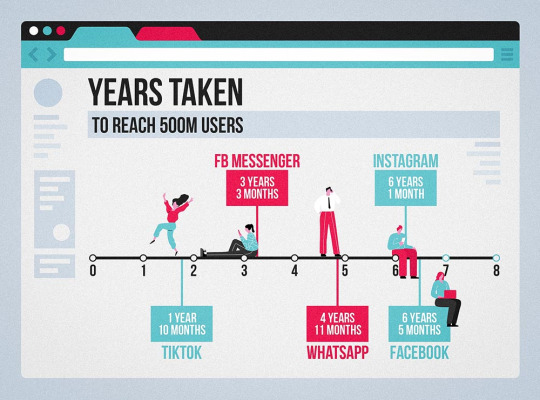
when it comes to learning how quickly misinformation can spread worldwide and how fast it can find its way into people's minds, it is crucial to comprehend how quickly misinformation spreads.
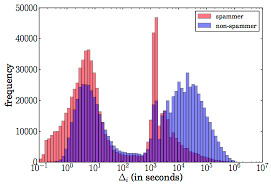
In today's world, distinguishing between trustworthy and unreliable sources of information is vital. We can achieve this by promoting media literacy, enabling access to reliable sources, and teaching critical thinking skills. Let's become well-informed individuals who make sound decisions based on reliable information.
The key to avoiding misinformation is to search for it and verify it from reputable sources. It is also essential to think critically and question information online. Additionally, it is vital to be aware of sources' potential biases and be skeptical of claims and how you can stop it.

As a result of my research, I have come across some links that can help young people understand and navigate the world of misinformation. These resources will help young people make more informed decisions and become more media literate due to using them.
Here are some tips from the Washington Post for older kids who are coming of age. It was interesting to read the following quote in this article: "There's a flood of real, misleading, and fake breaking news and information online. Proceed with caution." This quote reminds me so much of any social media platform, including TikTok.
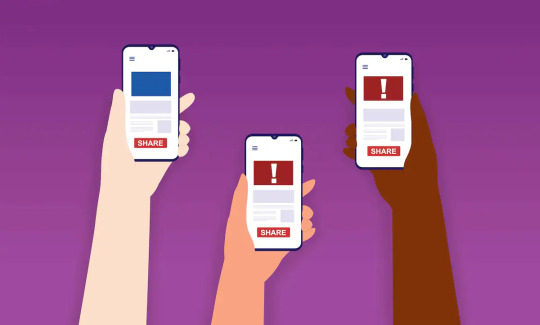
According to this article The TikTok algorithm is designed for doomscrolling," Volland says. "Being so overwhelmed by information volume makes distinguishing high- from low-quality content difficult. It can make us feel more anxious, and we should be cognizant of that for young people who spend so much time on the platform." As a result, it is critical to help young people develop the necessary thinking skills and understand how to identify false information.

It is scary that anyone with an internet connection can watch breaking news unfold in real-time, or at least some version. It's not uncommon for posts on social media to fly up faster than fact-checkers and moderators can keep up with, and they're often a mix of real and fake, out-of-context and propaganda. Current events are difficult to understand, which makes people need help to make informed decisions. Both social media sites and parents are responsible for moderating content to help kids from spreading false information, and Tictok is no different.
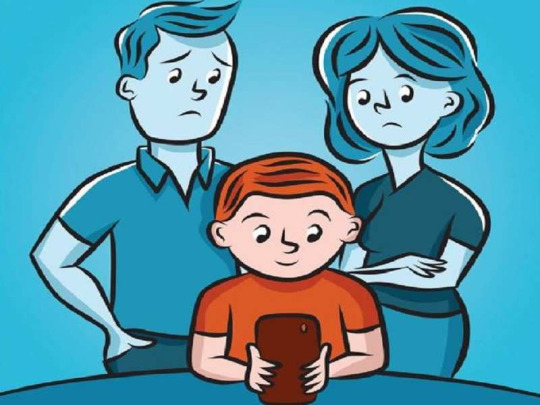
Volland finds it challenging to fight misinformation on TikTok due to its mysterious nature. However, in its current state, although it is a good platform for young users, it is a concern to them as it stands. Children's limited ability to sort accurate information from unwanted information impacts their mental health both positively and negatively. Nonetheless, at least they are doing something to let people know what is happening with #FactCheckYourFeed to support media literacy by putting up warning signs to let people know what's happening.
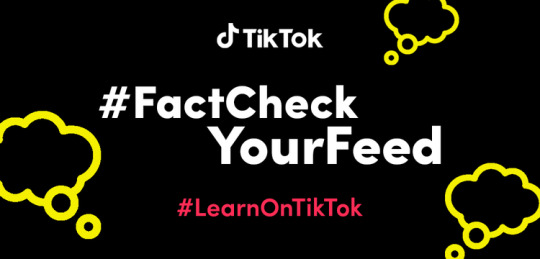
As a final point, we need to create an environment that allows people to feel comfortable discussing and debating different issues of view safely and comfortably. Teens are vulnerable to misinformation, which can lead to negative consequences such as spreading false information, eroding trust in institutions, and even causing physical harm. Protecting vulnerable populations and ensuring access to reliable information is very crucial. I hope you learned something new today and checked out the links above to help educate yourself and your peers.
Here is the workcited:
Kelly, Heather. “How to Avoid Falling for Misinformation, Fake AI Images on Social Media.” The Washington Post, WP Company, 22 May 2023, www.washingtonpost.com/technology/2023/05/22/misinformation-ai-twitter-facebook-guide/.
Tamez-Robledo, Nadia. “For Teens (and Adults) Fighting Misinformation, Tiktok Is Still ‘uncharted Territory’ - Edsurge News.” EdSurge, EdSurge, 7 Dec. 2022, www.edsurge.com/news/2022-12-07-for-teens-and-adults-fighting-misinformation-tiktok-is-still-uncharted-territory.
“Tiktok Launches #factcheckyourfeed to Support Media Literacy.” Newsroom, TikTok, 16 Aug. 2019, newsroom.tiktok.com/en-gb/tiktok-launches-factcheckyourfeed-to-support-media-literacy.
0 notes
Text
HIV Mysteries: What Do We Know About This?

HIV (Human Immunodeficiency Virus) is a significant public health concern worldwide, with over 37 million individuals suffering from the disease, according to estimates by WHO by 2021. HIV remains a risky virus, despite the advances in the field of medical research. It infects the immune system, and gradually damages it. The virus is plagued by a myriad of falsehoods and myths that require to be dispelled. In this blog post, we will dive deep into the science behind the HIV virus, and learn the essential aspects one needs to know.
What exactly is HIV?
HIV is a virus which attacks and weakens the immune system of the host, making it difficult for the body's immune system to fight illnesses and infections effectively. The virus attacks the CD4 (T) cells that are crucial for the immune response. They eventually die. If the CD4 cell count in the body drops below a certain limit, it makes the person more vulnerable to disease and infection. When you expect to find out detailed information on HIV, you have to click over here at aids2010 website.
How does HIV spread?
HIV is transmitted via bodily fluids such as semen, blood, as well as vaginal fluids. The virus gets transmitted between people through unprotected sexual contact or sharing needles or Syringes that are infected with another or from mother to baby when pregnant, during childbirth or nursing, as well as via blood transfusions (rarely nowadays due to rigorous screening procedures).
HIV Signs
Initial signs of HIV can be like flu-like symptoms, but are hard to tell. The most common symptoms are fatigue, headaches, muscular discomfort, sore throat, and an increase in lymph glands. In the later stages, when the immune system has been severely affected, symptoms can range from weight loss, frequent diarrhea, dementia as well as opportunistic infections.
Prevention and Therapeutic Treatment
At present, there's no cure for HIV however, there are several treatment options to can help control the disease and prevent its progression. Antiretroviral treatment (ART) is the preferred treatment used to suppress the growth of HIV and boost the immune system's health. It consists of a mixture of medications that need to be taken regularly and correctly all through one's lifetime.
youtube
It is crucial to stay clear of HIV transmission by practicing secure sexual activity and using condoms. Beware of sharing syringes or needles. Opt for frequent HIV counselling and testing. Early detection and treatment is vital to prevent HIV progress while reducing complications as well as improving quality of life.
Myths and Misconceptions
HIV is often surrounded by incorrect myths and misconceptions, that can result in stigmatization and discrimination of people who suffer from HIV. A common misconception is that HIV can spread through casual contact like hugging, kissing and sharing food or mosquito bites. Yet, HIV cannot spread in these ways, and stigmatizing people living infected with HIV could affect their physical and mental health.
HIV Global Status
Despite numerous efforts to stop the spreading of HIV, HIV still remains an important health problem for the public across the globe. Around the world, 820,000 people are expected to die from AIDS related ailments by 2021. HIV is a threat to vulnerable populations like transgenders, men who have been in a relationship with males, sexworkers, and those who take drug. To stop HIV transmission, structural socioeconomic, and economic factors must be addressed.
Conclusions
HIV is a major public health issue in the world. Being aware of the major characteristics of this virus can help you prevent the spread of the virus and efficiently control the disease. Safe sex practices, frequent HIV screening, and prompt diagnosis and treatment is crucial in preventing HIV progression and improving the quality of life for people living with HIV. Debunking the myths and misinformation about HIV is crucial to reduce the stigmatization and discrimination faced by those who suffer from HIV. All of us must work together in order to eradicate HIV from our world and its effects.
0 notes
Text
Ethical and Legal Fundamentals of Social Media
The current state of social media ethics:
what trends are happening in the industry? What are two current cases related to social media ethics?
Video content is getting more popular on social media platforms, especially short videos. Ever since the success of Vine, many companies and platforms came up with competitors like Instagram 15-sec video, Instagram Reels, TikTok, Youtube Shorts, etc. “93% of social media marketers who use video say it’s a vital component of their social media video strategy.” (https://sproutsocial.com/insights/social-media-video-statistics/) This has brought ethical problems like social media plagiarism (content theft), inappropriate content, and misinformation. One of the current cases is the use of Deepfake technology to mimic people without their permission, potentially spreading misinformation, manipulating the public, and damaging people’s reputations. As its technology advances, it has become a threat to everyone. (https://www.prindleinstitute.org/2020/12/ethical-considerations-of-deepfakes/) Another case would be the Elsagate. It was first acknowledged in 2016, Youtube created new guidelines on monetization to combat the situation. However, Elsagate is back again to target children through channels, intended to spread negativity and/or sexual content to children. (https://www.uscybersecurity.net/elsagate/ and https://wegotthiscovered.com/social-media/elsagate-is-back-as-new-youtube-trend-targets-children-through-bluey/)
Outline the current code of ethics for social media by a professional organization you would be interesting in joining as part of their social media staff.
I would be interested in joining Youtube as part of their social media staff. Youtube’s current community guideline states that “Hate speech, predatory behavior, graphic violence, malicious attacks, and content that promotes harmful or dangerous behavior isn't allowed on YouTube”. (https://support.google.com/youtube/answer/9288567?hl=en)
Brands/professionals with strong social media ethical codes:
what brands are utilizing proper social media ethical practices? Are there any professionals that you feel practice strong ethical behavior on social media? Support your choice with evidence.
Coca-Cola is a brand with strong social media ethical codes. The company believes relevancy, respect, and the rights of the individual are key to our digital media approach, guiding employees for both individual participation and participation on behalf of the company. In 2020, Coca-Cola boycotted social media ads globally for at least 30 days to join the #StopHateForProfit campaign that aim to stop Facebook from valuing profits over racism, antisemitism, and all forms of hate. "’There is no place for racism in the world and there is no place for racism on social media,’ the drinks maker's chairman and CEO James Quincey said.“ (https://www.bbc.com/news/business-53204072 ) Lexington Medical Center, as a medical professional organization, has also helped protected social media ethics. They do not have a specific social media policy, but they have openly shown that they do not tolerate hateful behavior, even on social media, by firing an employee for posting racial slurs on Facebook. “‘The employee’s comments did not reflect our values and violated our organization’s policies. We do not tolerate that type of behavior,’ the hospital said in a statement. ‘At Lexington Medical Center, our goal is to provide our patients, families, and visitors with the finest health care available,” it continued. “This care begins with recognizing the dignity, diversity, and worth of every individual in our community and committing to treating each other with respect and compassion.’” (https://www.postandcourier.com/news/lexington-medical-center-employee-fired-after-posting-a-racial-slur-on-facebook/article_9f143ef4-a1ae-11ea-ac32-b3ed6a390af4.html)
What are some takeaways you can bring forth in your own practices?
The anonymity that social media gives may lead to a lack of accountability, but that doesn’t give people the excuse to bully or harass others. In my opinion, ethics on social media should be no different from the ethics in real life. From all of the examples above, I believe the key to being ethical is to have respect for others and be responsible for the way you act and the things you share. With that in mind, it’ll not be hard to use social media ethically.
Key concepts and issues:
what main concepts do you think are necessary to adhere to for your own personal conduct online?
The main concepts I think are necessary are respect, empathy, and being truthful and accountable. They are really broad concepts, but I think those are the foundations of social media ethics.
What to do and what not to do:
what main concepts do you feel strongly against and want to make sure you avoid on social media?
I would like to avoid forming an opinion too early when it comes to seeing content on social media. Social media lacks the credibility of traditional mass media, and it’s important to observe and research before concluding.
Bullet point 5-10 core concepts that you will follow as a practicing social media professional.
Be respectful, if you wouldn’t say it in public, don’t say it here
Follow the policies and guidelines of the different social media platforms
Be responsible for all the things to post or repost, fact-checks are necessary
Be ready to face the hate and negativity on social media, and learn to handle it maturely
Avoid controversial topics before being educated on them
Avoid social media plagiarism, always ask for permission and give credit to the creator
References:
https://sproutsocial.com/insights/social-media-video-statistics/
https://www.prindleinstitute.org/2020/12/ethical-considerations-of-deepfakes/
https://www.uscybersecurity.net/elsagate/
https://wegotthiscovered.com/social-media/elsagate-is-back-as-new-youtube-trend-targets-children-through-bluey/
https://support.google.com/youtube/answer/9288567?hl=en
https://www.bbc.com/news/business-53204072
https://www.postandcourier.com/news/lexington-medical-center-employee-fired-after-posting-a-racial-slur-on-facebook/article_9f143ef4-a1ae-11ea-ac32-b3ed6a390af4.html
0 notes
Photo
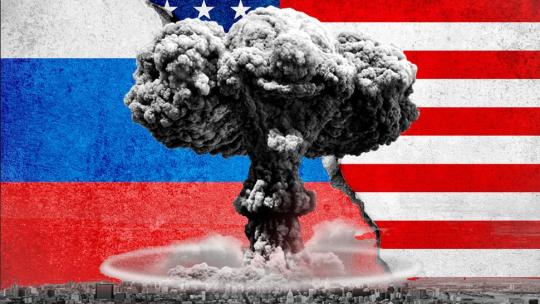
Misinformation can have devastating consequences, especially when it comes to nuclear war. While social media can have a positive effect on global security and help to get information out quickly, it can also be used to spread falsities with dangerous results. It's vital we confront this issue and stop the spread of false information to protect our world. Help us raise awareness with platform owners! Visit www.shieldryx.com, we have the solution. #NoMisinformation #socialmediasafety #KnowTheTruth
0 notes
Text
This One Thing Made Alex Jones Stop Lying Alex Jones will have...
New Post has been published on https://robertreich.org/post/696671940226826240
This One Thing Made Alex Jones Stop Lying Alex Jones will have...
youtube
This One Thing Made Alex Jones Stop Lying
Alex Jones will have to pay millions to the parents of Sandy Hook victims.
Fox News might be on the hook for over a billion dollars after making bogus 2020 election claims.
It turns out there actually might be a way to stop the constant stream of lies coming from the right-wing media. How can we do it? Two words:
Sue. Them.
This won’t defeat the right’s media ecosystem overnight — but defamation law may prove to be one vital weapon in the battle against misinformation. Let me explain.
Alex Jones, you may recall, had used his website InfoWars to portray the Sandy Hook school shooting massacre as a hoax involving actors, aimed at increasing gun control. Parents of victim children sued Jones and his media company for $150 million — ultimately winning an initial settlement of $49 million.
Courts in Texas and Connecticut had already found Jones liable for defamation. And as a result, Jones’ parent company, Free Speech Systems, filed for bankruptcy.
Even though Jones lost this case and finally admitted that the Sandy Hook massacre was “100 percent real,” he’s probably not going to stop making harmful and deceptive videos anytime soon.
But this defamation lawsuit will serve as a warning to both Jones and others in the media who build their business models around spreading lies.
Like OAN.
One America News, a Trump-allied media organization that pushed conspiracy theories about the election, is facing so many defamation lawsuits from those harmed by the start-up network’s lies that its future is now in doubt.
Cable providers have dropped OAN like an extremist hot potato, and the network is now only available to a few hundred thousand people who subscribe to smaller cable providers.
Talk about cutting the chord.
Defamation lawsuits have also been filed against more established right-wing media organizations, like Fox News.
Dominion Voting Systems, a maker of election information technology used widely across the country, is suing Fox for $1.6 billion over false claims they say the network knowingly made about its software following the 2020 Election.
The case could potentially be a huge financial blow to Fox, and serve as one of the most consequential First Amendment cases in a generation.
Again, to be clear, defamation litigation will not single handedly stop the rampant spread of misinformation taking over the airwaves and the internet. These lawsuits can take years and often end up being expensive, plus some of the media organizations peddling lies are bankrolled by conservatives with deep pockets and a radical agenda.
It can also be abused, and in some cases, pose potential threats to the free press. Although, if news outlets are alerted to errors and correct them quickly, defamation shouldn’t be a problem.
But at a time when social media companies clearly can’t be trusted to moderate themselves against weaponized lies — and elected officials have done little to step-in — the courts might be the best avenue we have to take on manufactured deception and put it to rest.
Where other methods to counter half-truths and exaggerations being spewed by Fox News and their ilk have failed, defamation law might make companies think twice before they knowingly spread falsehoods — and help stop the vicious cycle of lies, clicks, and profits that further divides our country.
0 notes